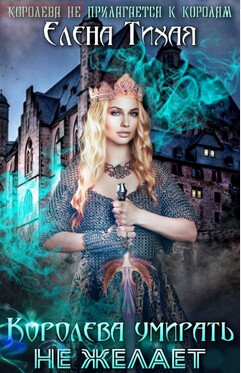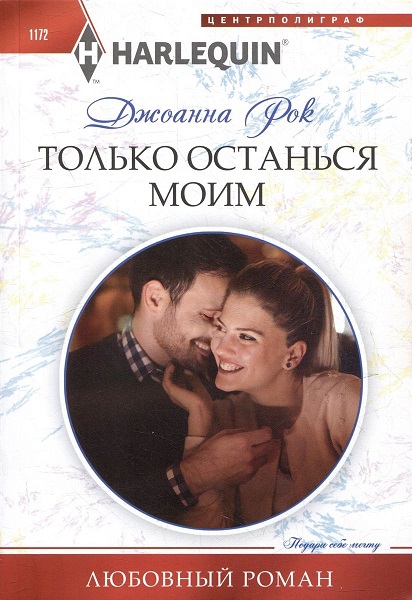Благословение Небожителей. Том 6 (ЛП) - Мосян Тунсю

Помощь проекту
Благословение Небожителей. Том 6 (ЛП) читать книгу онлайн
SHANGYUAN: Shangyuan Jie (上元節), or the Lantern Festival, marks the fifteenth and last day of the Lunar New Year (usually around February on the Solar Calendar). It is a day for worshipping and celebrating the celestial heavens by hanging lanterns, solving riddles, and performing Dragon Dances. Glutinous rice ball treats known as yuanxiao and tangyuan are highlights of this festival, so much so that the festival’s alternate name is Yuanxiao Jie (元宵節).
SHRINES: Shrines are sites at which an individual can pray or make offerings to a god, spirit, or ancestor. They contain an object of worship to focus on such as a statue, a painting or mural, a relic, or a memorial tablet in the case of an ancestral shrine. The term also refers to small roadside shrines or personal shrines to deceased family members or loved ones kept on a mantle. Offerings like incense, food, and money can be left at a shrine as a show of respect.
SPIRIT BANNER: A banner or flag intended to guide spirits. Can be hung from a building or tree to mark a location or carried around on a staff.
STATE PRECEPTOR: State preceptors, or guoshi, are high-ranking government officials who also have significant religious duties. They serve as religious heads of state under the emperor and act as the tutors, chaplains, and confidants of the emperor and his direct heirs.
SWORDS: A cultivator’s sword is an important part of their cultivation practice. In many instances, swords are spiritually bound to their owner and may have been bestowed on them by their master or a family member, or obtained through a ritual. Cultivators in fiction are able to use their swords as transportation by standing atop the flat of the blade and riding it as it flies through the air. Skilled cultivators can summon their swords to fly into their hand, command the sword to fight on its own, or release energy attacks from the edge of the blade.
SWORD GLARE: Jianguang (剑光 / “sword light”), an energy attack released from a sword’s edge.
SWORN BROTHERS/SISTERS/FAMILIES: In China, sworn brotherhood describes a binding social pact made by two or more unrelated individuals. Such a pact can be entered into for social, political, and/or personal reasons. It was most common among men but was not unheard of among women or between people of different genders.
The participants treat members of each other’s families as their own and assist them in the ways an extended family would: providing mutual support and aid, support in political alliances, etc. Sworn siblings will refer to themselves as brother or sister, but this is not to be confused with familial relations like blood siblings or adoption. It is sometimes used in Chinese media, particularly danmei, to imply romantic relationships that could otherwise be prone to censorship.
TALISMANS: Strips of paper with spells written on them, often with cinnabar ink or blood. They can serve as seals or be used as one-time spells.
THE THREE REALMS: Traditionally, the universe is divided into Three Realms: the Heavenly Realm, the Mortal Realm, and the Ghost Realm. The Heavenly Realm refers to the Heavens and Celestial Court, where gods reside and rule, the Mortal Realm refers to the human world, and the Ghost Realm refers to the realm of the dead.
VINEGAR: To say someone is drinking vinegar or tasting vinegar means they’re having jealous or bitter feelings. Generally used for a love interest growing jealous while watching the main character receive the attention of a rival suitor.
WEDDING TRADITIONS: Red is an important part of traditional Chinese weddings, as the color of prosperity, happiness, and good luck. It remains the standard color for bridal and bridegroom robes and wedding decorations even today. During the ceremony, the couple each cut off a lock of their own hair, then intertwine and tie the two locks together to symbolize their commitment.
WHISK: A whisk held by a cultivator is not a baking tool but a Daoist symbol and martial arts weapon. Usually made of horsehair bound to a wooden stick, the whisk is based off a tool used to brush away flies without killing them and is symbolically meant for wandering Daoist monks to brush away thoughts that would lure them back to secular life. Wudang Daoist Monks created a fighting style based on wielding it as a weapon.
YAO: Animals, plants, or objects that have gained spiritual consciousness due to prolonged absorption of qi. Especially high-level or long-lived yao are able to take on a human form. This concept is comparable to Japanese yokai, which is a loanword from the Chinese yao. Yao are not evil by nature but often come into conflict with humans for various reasons, one being that the cores they develop can be harvested by human cultivators to increase their own abilities.
YIN ENERGY AND YANG ENERGY: Yin and yang is a concept in Chinese philosophy that describes the complementary interdependence of opposite/contrary forces. It can be applied to all forms of change and differences. Yang represents the sun, masculinity, and the living, while yin represents the shadows, femininity, and the dead, including spirits and ghosts. In fiction, imbalances between yin and yang energy can do serious harm to the body or act as the driving force for malevolent spirits seeking to replenish themselves of whichever they lack.
ZHANMADAO: A large, two-handed bladed weapon that was designed to counter cavalry units.
ZHONGYUAN: Zhongyuan Jie (中元節), or the Ghost Festival / Hungry Ghost Festival, falls on the fifteenth day of the seventh month of the Lunar Calendar (this usually falls around August/September on the Solar Calendar). The festival celebrates the underworld, and offerings are made to the dead to appease their spirits and help them move on.
Footnotes
1. A zhanmadao is a single-bladed, two-handed saber meant to be wielded against cavalry.
2. The “Nan” / 南 of “Nan Feng” is the same character used in Feng Xin’s heavenly title, Nan Yang, and the “Feng” / 风 is the same character used in Feng Xin’s proper name. “Fu Yao” / 扶摇 literally means to “take off/take flight”; figuratively, it means “someone who climbs the ladder quickly” or “an ambitious person.”
3. Fox spirits in Asian folktales are seducers who bewitch humans into falling helplessly in love with them.
4. 癞蛤蟆想吃天鹅肉 / “A toad lusting for swan meat” is an idiom used to describe someone who lacks self-awareness and desires the impossible, especially an ugly person who romantically pursues someone significantly more attractive.
5. The name “Yong’an” means “Forever Peace.”
6. [無名] “Wuming” means “Nameless.”
7. “Pot Bottom” is the layer of rice at the very bottom of a cooking pot that is usually burnt.
About the Author
“A young superstitious girl,
renowned poster of memes;
a gourmet world goof, who takes photos with shaky hands;
and types cursedly slow, finishing stories depending on the mood.
...All lies.
I actually enjoy a refreshing cup of tea in the afternoon, staring into the far-off distance as I open my beloved notebook to write poetry.
...No, no, no, that’s even more of a lie.
All right, actually, I'm just someone
who writes.
Yep.”
Mo Xiang Tong Xiu (MXTX) is a globally renowned author whose works are often cited as the best-known in the modern danmei genre. Originally self-published via the novel serialization website, JJWXC, her current titles include The Scum Villain’s Self-Saving System, Grandmaster of Demonic Cultivation, and Heaven Official’s Blessing. All three series have received multiple adaptations and have been published in numerous languages around the world.























